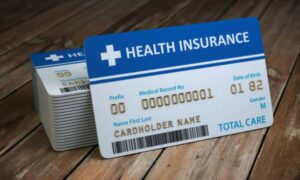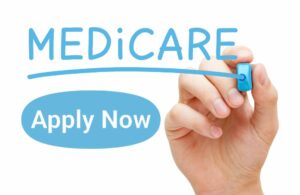Dental, vision, and hearing care can be hard to find under Medicare, but we’re here to help. Here is all you need to know about getting this coverage through Medicare.
Dental, Vision, and Hearing Coverage Under Original Medicare
Dental, vision, and hearing care under Original Medicare is very limited. In most cases, you will only be able to receive these benefits if you have a significant medical need—this means that, unless you have a consistent or emergency medical issue that requires either dental, vision, or hearing care, it will not be covered by your insurance.
unless you have a consistent or emergency medical issue that requires either dental, vision, or hearing care, it will not be covered by your insurance.
If you want this coverage for things such as checkups, glasses, hearing aids, etc., you will have to seek out other plans to add to your Original Medicare coverage—to do so, you may either enroll in Medicare Advantage or a supplemental Medicare plan.
Dental, Vision, and Hearing Coverage Under Medicare Advantage
Medicare Advantage, sometimes referred to as Medicare Plan C, is an alternative to Original Medicare (Parts A and B). It provides additional benefits including dental, vision, and hearing services not available under Original Medicare alone.
To lower your out-of-pocket costs, Advantage plans arrange your care according to your healthcare needs and their specific strategy. In most cases, this includes primary care doctors and checkups. These plans work an established network and negotiate costs with healthcare providers, significantly reducing what you pay for care.
Because Advantage plans cover doctor’s visits and checkups, they often by default cover dental, vision, and hearing care. However, be wary when choosing a plan. Oftentimes providers will greatly exaggerate the amount of coverage they offer in this area. So, do not assume that all things related to dental, vision, and hearing care are included in an Advantage plan—more often than not, it will only apply to general checkups and not specific benefits such as hearing aids, dentures, or glasses.
Medicare Supplemental Coverage for Dental, Vision, and Hearing Care
Both Medicare Advantage and supplemental plans will offer all the same coverage as Original Medicare, so you will never have to worry if your basic medical needs are covered. Stand-alone supplemental plans, however, function differently than Medicare Advantage.
Do not confuse stand-alone plans with Medicare Supplement plans. Supplement plans provide cost coverage to Original Medicare, including various coinsurance/copayment fees, Part A and B deductibles and premiums, skilled nursing care, blood transfusions, and foreign travel emergency care.
You may, however, choose to enroll in a stand-alone plan that covers dental, vision, and hearing care. While no Medicare-specific plans fully cover these benefits, there are plans out there that do. To find plans in your area you will have to do a bit of research, but we can help—if you need help finding the right plan, contact Medicare on Video.
Cost of Dental, Vision, and Hearing Care Under Original Medicare
If you choose not to invest in an Advantage or stand-alone plan for dental, vision, and hearing coverage, you will still be able to receive care in those areas, just at a higher cost. The cost for vision care without an applicable plan is $200 for a new patient exam, $46 for all of the following routine eye exams, and the cost of any additional aids such as glasses or contacts if not medically necessary.
Without hearing coverage, you will pay roughly $250 for your initial hearing test, $46 for all following checkup exams, and anywhere from $100-$6,000 for hearing aids.
Dental care follows a very similar pattern, costing anywhere between $200-$250 for your initial exam and $46 for the following ones. And, for additional, non-medically necessary benefits such as dentures, you will have to pay the full prices out-of-pocket.
The Future of Medicare and Dental, Vision, and Hearing Coverage
A bill was passed by the U.S. House of Representatives that will determine whether or not Medicare will begin providing dental, vision, and hearing coverage. It has now moved into the U.S. Senate and, if passed, will provide this coverage under Original Medicare, and limit Medicare beneficiary’s yearly out-of-pocket prescription costs to $2,000.
Approving this bill would mean that preventive and screening dental services would be included under Medicare Part B, including oral exams, cleanings, tooth restorations, and extractions. And, following the way in which Medicare Part B currently, beneficiaries would cover 20%, while Medicare provided the other 80%. Other major treatments, however, will be a bit more costly to start out. Only 10% of bridges, crowns, root canals, dentures, and other intensive care treatments would be covered by Medicare, the remaining 90% by the beneficiary. This share would, however, drop to 50% over a few years.
Routine eye exams will also be included as a “norm” under this new bill. Rather than receiving no coverage at all, beneficiaries will now receive the standard 80% coverage from Medicare, and only have to pay the remaining 20% out-of-pocket. It would also provide a flat rate of $85 towards glasses, contacts, and various other vision aids.
Hearing exams and hearing aids will also become standard under Part B. The new bill ensures that Medicare beneficiaries pay the standard rate for hearing care (20%) rather than having to pay fully out-of-pocket.
If You Need Help Figuring Out Your Dental, Vision, and Hearing Coverage, Contact Medicare on Video for a Free Consultation
Our main goal is to help you in every way that we can. Our instructional videos and blogs are made for people just like you to make sure they are receiving the Medicare coverage they need and deserve. If you need help with or have any questions regarding Medicare, contact Medicare on Video for a free consultation by giving us a call at 877-88KEITH (53584), or email Keith@MedicareOnVideo.com.
















